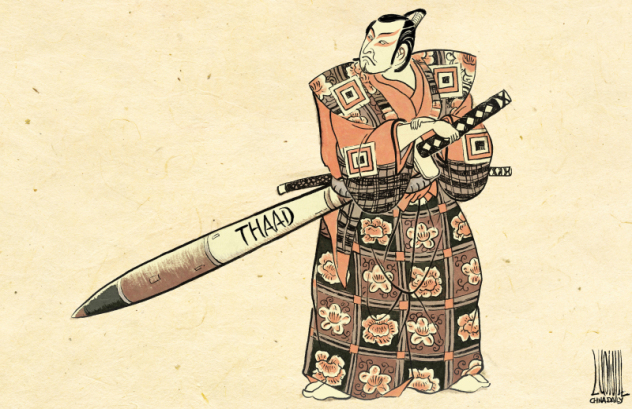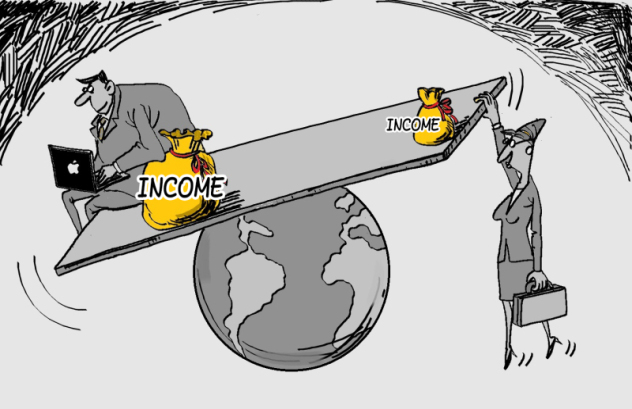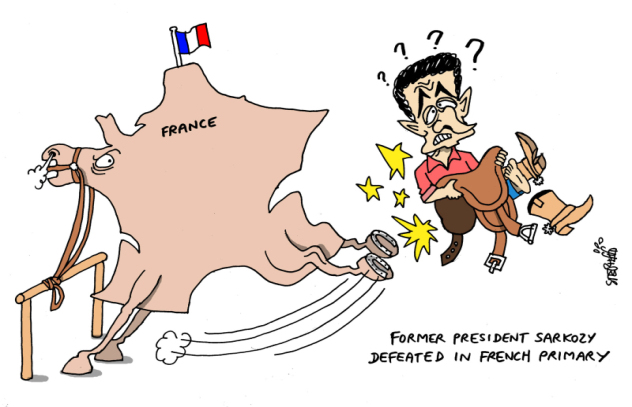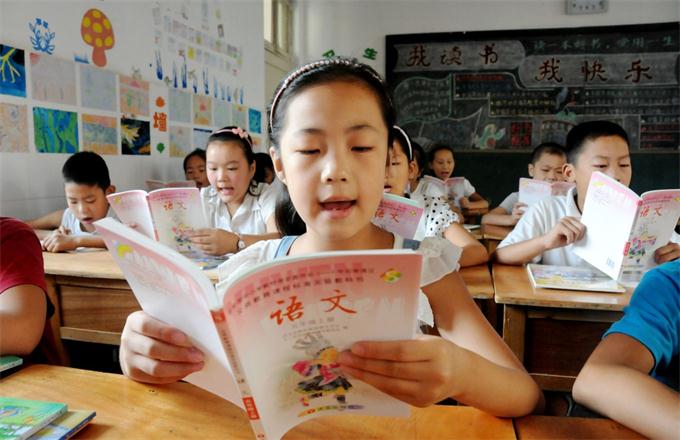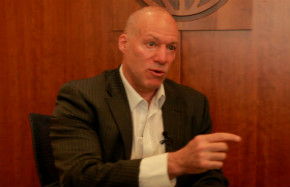Why China needs Xi Jinping as its core leader
 |
| A file photo of President Xi Jinping. [Photo/Xinhua] |
When, at a recent party plenum, President Xi Jinping was designated as “core” of the Communist Party’s Central Committee, some Western media were quick to condemn the rise of a new “strongman”. While recognising the significance of Xi as the core was correct, conjuring up visions of an emerging dictator was not.
I recalled my meeting with Xi years earlier, when he was still party secretary of Zhejiang province. Even then he was criticising “empty talk” and advising, “We should never overestimate our accomplishments or indulge ourselves in our achievements”. I took note of how Xi stressed, “We need to assess ourselves objectively”. Hardly, in retrospect, the ruminations of a gestating dictator.
To understand why Xi is now the core, one must appreciate the complex challenges of our times. China is now facing multiple challenges: domestically – slow growth, industrial overcapacity, endemic pollution, imbalanced development, income disparity, social injustice, social service demands; and, internationally – wars, regional conflicts, sluggish economies, volatile markets, trade protectionism, ethnic clashes, terrorism, geopolitical rivalries, and territorial disputes in the South and East China seas.
Most critically, because China must deepen its reforms to achieve its oft-promised goal of a “moderately prosperous society” by 2020, the resistance of entrenched interest groups must be overcome. More subtly, there is what some call a pervasive “soft resistance” – local officials who do not do their job and economic elites who migrate.
If reform had been progressing smoothly, then why strengthen central authority by investing Xi with the status of core leader? Xi has encountered obstacles; if there were no obstacles, there would be no need for a core leader.
I have been speaking to party -officials and theorists about Xi as core leader. In fact, the necessity of having a leadership core to maintain stability and expedite reform is the first and foremost of what I found to be four factors relating to Xi’s elevation.
A second factor is that not only does Xi have the responsibility for China’s transformation, he is also accountable for it. Moreover, he has shown courage in confronting and dismantling a vast, corrupt system of bribery, patronage and illicit wealth accretion.
A third factor is that Xi as the core does not end, and even may not diminish, the cardinal principle of “democratic centralism”. The party bolsters each of the concepts: encouraging the democratic solicitation of input and feedback from members, lower-ranked officials, and the public; and strengthening centralism through Xi’s leadership of the principal levers of power (his positions as party general secretary, head of state, chairman of the Central Military Commission, and head of the “leading groups” on reform, national security and internet security). True loyalty is telling leadership in private what one really believes is in their best interests, not repeating what one thinks leadership wants to hear
A fourth factor is that a core is required to manage the party more strictly and thereby give members and the public more confidence. Witness Xi’s relentless and unprecedented anti-corruption campaign, which is altering how government officials and industry managers work and even think. Let no one assume that Xi’s battle against corruption has been risk-free.
Significantly, these four factors undergirding Xi as the core leader map onto his overarching political framework, his strategic blueprint called “The Four Comprehensives” – a moderately prosperous society, reform, rule of law, party discipline.
Xi’s core status arises, we’re told, through the collective will of the party and the people. Becoming party core is not an automatic consequence of being general secretary; a core leader must fit the times and the status must be earned.
Speaking at a press conference following the 18th Central Committee’s sixth plenum last month, Huang Kunming, executive vice-minister of the committee’s Publicity Department, said that the “central and local departments as well as the military all expressed their support” for Xi’s position as party core, adding that this decision was “based on the valuable experience of the party and we feel keenly about it”.
Huang explained that “a core is needed to ensure that the party will be the governing party”, describing it as significant for upholding the Central Committee’s authority and maintaining the central, unified leadership of the party and for its “staying true to its mission”.
Therefore, party theorists explain, Xi as core leader is more a ratification of reality than a shift of fundamentals.
What does Xi as core mean in a historical context? It was Deng Xiaoping who introduced the concept when he designated Jiang Zemin as “core of the third generation” of central leaders, bolstering Jiang’s stature following his unexpected appointment as party leader in 1989. At the time, China was facing the dual impediments of economic stagnation and social uncertainty at home, and economic quarantine and diplomatic isolation abroad. As Deng pointed out: “Any leading group should have a core; a leadership with no core is unreliable.”Xi has encountered obstacles; if there were no obstacles, there would be no need for a core leader
Only then did Deng retrospectively apply the novel term to Mao Zedong and to himself, as core of the first and second generations, respectively. (Of course, Mao was so utterly dominant that calling him core during his lifetime would have seemed a demotion. Deng remained core even when he no longer held any official position.)
Today’s world is more complex. China faces threats at home and abroad. Volatility grows and uncertainty abounds – the Middle East and Donald Trump are offered as evidence. The need to secure China’s stability is more essential than ever, and thus to strengthen Xi’s authority is a primary reason, I’m told, for designating Xi as core leader. Party theorists say China “urgently” requires a political nucleus that is sophisticated and nuanced, attuned to contemporary times. Though conditions now differ from those in 1989, Deng’s admonition rings timelessly true.
However, that a core leader is needed now does not mean one will always be needed. When China becomes a fully modernised nation, perhaps by mid-century, conditions may change again.
I hear frequently of the “painful lessons of China’s century of blood and tears” and that for China not to have a tested and authoritative leadership core would be “unthinkable”. Party inner talk says “Xi Jinping has passed the test of the people” to be China’s political core, leadership core, and a core of the times. Having a core means acknowledging that the party system is not the ‘emperor system’
Chinese scholars argue that “core” is a unique characteristic of Chinese political theory – however inapplicable (even inexplicable) in Western political theory. They call Western concerns that Xi as core leader means that “a new emperor is born” wildly unfounded, even paranoic. In feudal society, the emperor ruled unconditionally with arbitrary imperial power, and in such a “command-obey” system, goes the argument, there is simply no need for a core.
Rather, given today’s party political structure, the concept of a core both strengthens cohesion and serves to prevent a personality cult, not to promote one. Having a core means acknowledging that the party system is not the “emperor system” – absolute power is rejected – and that the optimum system, at least for the foreseeable future, is a combination of concentrated centralism and democratic collective leadership.
Corroborating this functional balance, in the communiqué issued following the sixth plenum, the “collective leadership system” is reconfirmed. It states: “The implementation of collective leadership and personal division of labour is an important component of democratic centralism and must always be adhered to.” And it stresses: “Any organisation or individual shall, under any circumstance, not be allowed to violate this system for any reason.” The three “any’s” seem no accident.
Some analysts see contradictions. On the one hand, the communiqué calls for democracy and constructive criticism internally within the party. On the other, disobeying the central leadership is forbidden, backed by vigilant supervision and tough discipline.
Yet to read these statements as contradictory is to misunderstand what is happening here. Xi appreciates the complex and arduous tasks that lie ahead. He told me so a decade ago, and it is obviously truer today than it was then. The state-ments are harmonised, first, by the party’s motivation to seek optimum policies for the country, and second, by keeping most of the divergent views internal. Though there are concerns, no one here worries that Xi will become Mao
True loyalty is telling leadership in private what one really believes is in their best interests, not pandering and fawning by repeating what one thinks leadership wants to hear. Though there are concerns, no one here worries that Xi will become Mao.
China is now the world’s largest trading nation and its second-largest economy. China’s diplomacy is expanding and its military is growing. From its Belt and Road initiative building infrastructure and facilitating trade in over 60 developing countries to its leading role in the UN peacekeeping forces, China, the “Middle Kingdom”, is involved in every meaningful matter of international affairs.
So, what kind of China do we want? Certainly not one with weak central leadership and fragmented citadels of power. With its huge and imbalanced population, and its diverse culture and traditions, China today requires a leader with sufficient strength and prestige to secure social stability, drive economic reform, and guide it in being a responsible world power. Xi as core leader should be good for China and, thus, for the world.
Robert Lawrence Kuhn is a public intellectual, political/economics commentator, and an international corporate strategist.
The opinions expressed here are those of the writer and don't represent views of China Daily website.



